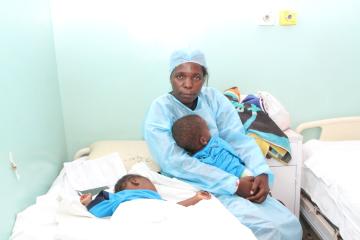An updated food recall system in the United Kingdom has improved the situation but there are still areas to develop and things to consider for the future, according to an evaluation.
In 2016 and 2017, the Food Standards Agency (FSA) and Food Standards Scotland (FSS) held a review to improve the way food is recalled. This resulted in changes to the withdrawals and recalls system, including new guidance, a revised point-of-sale notice template for shops, and additional training for food businesses.
RSM UK Consulting was commissioned by FSA and FSS in 2021 to evaluate the development of the new system. This included a desk review, interviews with those who worked on the updated system, case studies of real recalls, looking at hypothetical scenarios, and consumer focus groups.
Those who worked on the new traceability, withdrawals, and recalls guidance said it was an improvement on the old document. However, one concern was that smaller businesses have fewer resources to implement the new processes and understand the legalities behind them. Lack of resources was also discussed as a barrier by local authorities.
As regulators do not control where point-of-sale notices are placed within a store, availability of information to consumers can be variable and awareness of a recall can be based on chance.
Focus on root cause analysis
Consumers who had experienced a recall suggested they had a clear understanding of their role, while those who hadn’t were less confident of actions to take. Many said they would be more likely to dispose of the product than return it to the store. Food firms said consumers often contacted them directly to ask about the next steps during the recall.
Interviewees said supermarket loyalty programs could be a way of alerting consumers to a product recall with members automatically contacted and there should be more use of social media posts to raise public awareness. Consumer uptake of the FSA and FSS text service for recalls was found to be low.
Most food companies that had done a root cause analysis (RCA) of a recall said it was helpful and led to changes including swapping suppliers, altering food preparation practices, updating labeling, or additional staff training to prevent future incidents.
Businesses did not share the RCA with others in their sector because of limited awareness of where it could be shared, uncertainty over who was responsible for doing it, and other business demands. This limits opportunities for cross-industry learning and to help other firms avoid the same problems. There is also no process to capture near-miss incidents, found in the evaluation.
Enforcement officers said RCAs are routinely conducted by larger firms, but there was further work required to ensure that smaller ones also took part in the process. They added that widespread analysis of RCAs or recall trends was not routine locally, because of resource constraints.
RSM said the FSA and FSS should consider developing a national database of RCAs, accessible by local authorities, and a database of near-miss incidents. This would be useful in monitoring current recall trends and noting any emerging trends.
Real recalls and mock incidents
Nine case studies of recalls were presented to assess the new product and withdrawal system. One covered a recall of breaded chicken because of Salmonella. The supplier of breaded chicken products no longer sources chicken from certain companies where Salmonella was detected and all products are also now cooked on-site.
Another was a date recall because of Hepatitis A. The firm’s supplier followed GLOBAL G.A.P, an international food safety standard for farms, but after the recall, the standard was challenged as all requirements were met but the incident still occurred.
Three fictional scenarios were posed to get views on how the current system may respond to future trends. They included products sold on Facebook Marketplace without allergen labels, the sale of counterfeit candy, and an international recall because of glass contamination.
In the first case, there was a limited resource in local authorities to identify unregistered companies selling food online, and an over-reliance on the public to alert enforcement officers. For the second incident, the challenge would be to determine if it was a food recall or food crime concern, and who was best placed at the regulator to address the issue.
In the third scenario, lost access to the Rapid Alert System for Food and Feed (RASFF) system has slowed things down with information now received through the International Food Safety Authorities Network (INFOSAN), which can be slower to react to an incident and lacks consistency across countries.
(To sign up for a free subscription to Food Safety News,click here.)
Note: This article have been indexed to our site. We do not claim legitimacy, ownership or copyright of any of the content above. To see the article at original source Click Here













